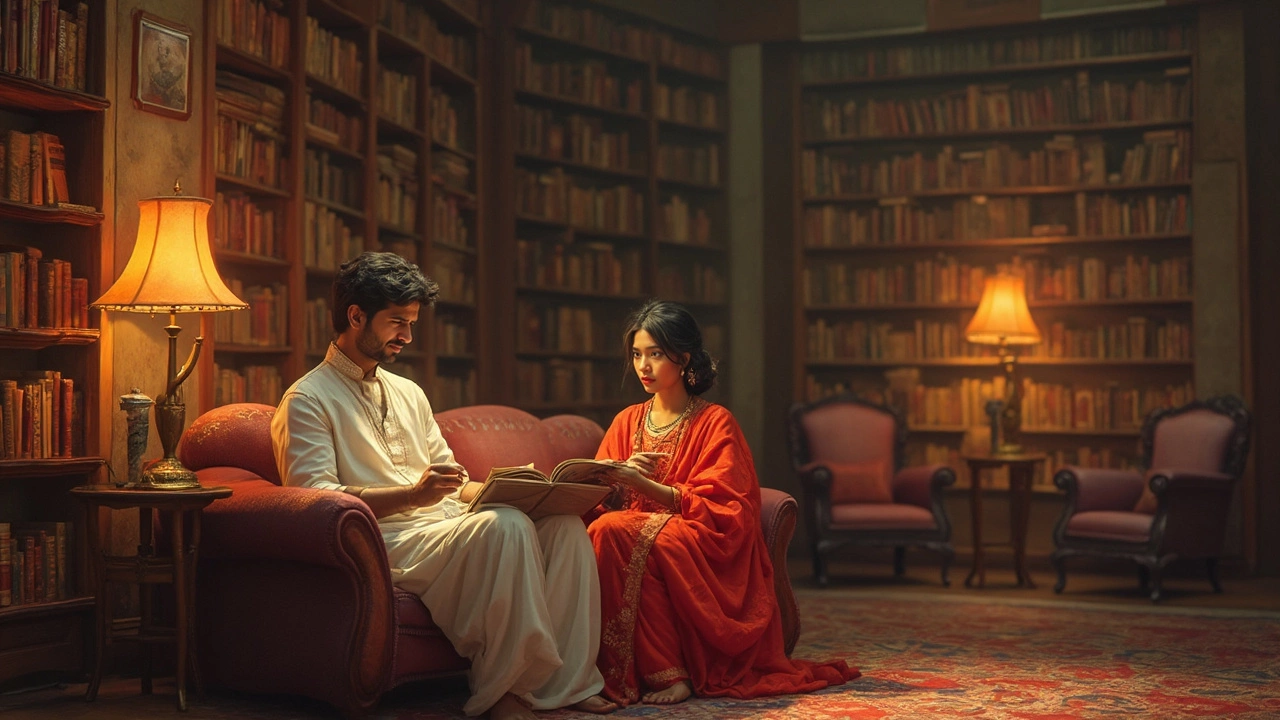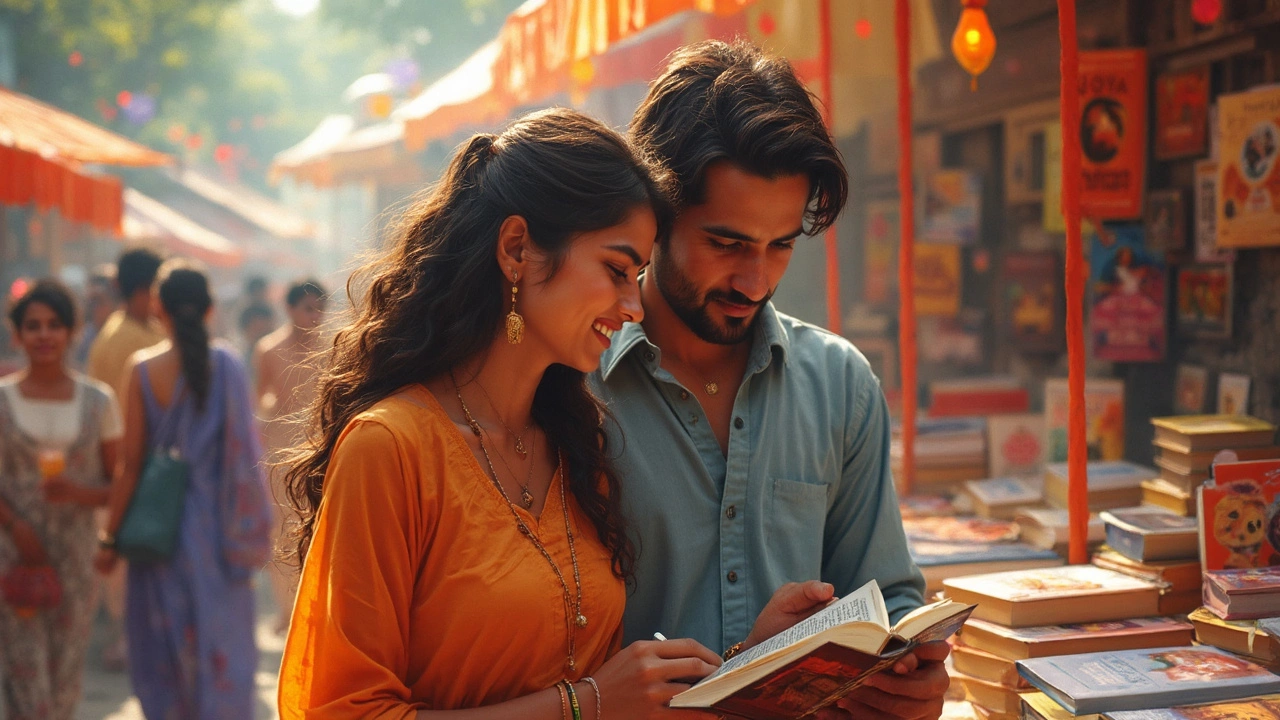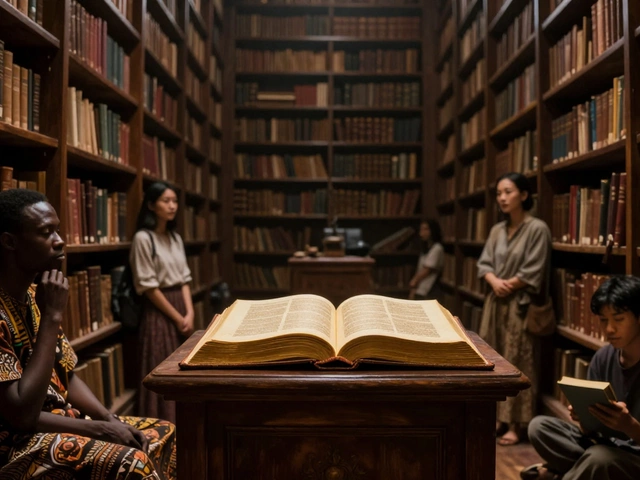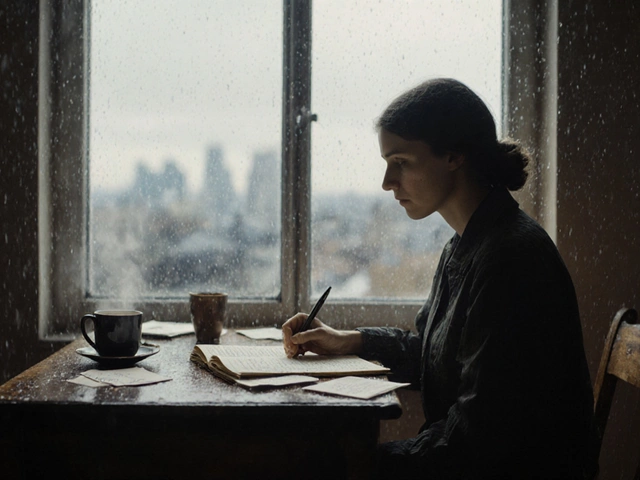
What's the most romantic book ever? It's that book you can't put down, the one that sweeps you off your feet and keeps your heart pounding long after you've turned the last page. Romance novels have a knack for doing just that—they are the masters of making your heart flutter and your imagination soar.
But choosing the most romantic one of all time isn't easy. There are the all-time classics that have stood the test of time, like 'Pride and Prejudice,' which isn't just a love story but a commentary on society, love, and second chances. And then there's 'Wuthering Heights,' where passion and madness dance together in an unforgettable tale.
In more recent times, books like 'The Notebook' continue to capture the spirit of everlasting love, proving that romance isn't limited to a single era or style. These stories resonate because they explore love's complexities, the very thing that makes our lives so rich and compelling.
So what makes these books so special? It's their ability to make us feel, to let us see ourselves in the characters' joys and struggles. They're a bridge to emotions, showing us the depth of human connection and the beauty that comes with it.
- Timeless Classic: Pride and Prejudice
- The Heartwrenching Magic of Wuthering Heights
- Modern Day Marvels: The Notebook
- Beyond the Pages: How Romance Novels Impact Us
Timeless Classic: Pride and Prejudice
Ah, Pride and Prejudice. If there's a romantic novel that stands as a pillar in the world of love stories, it's this one. Written by Jane Austen in 1813, it's been winning hearts for over two centuries. What keeps this story alive is its sharp wit, memorable characters, and the rollercoaster ride of emotions it offers.
At the heart of the book are Elizabeth Bennet and Fitzwilliam Darcy. Their complex relationship is a dance of misunderstandings, pride, and, of course, prejudice. Elizabeth is sharp and independent—traits not commonly celebrated in women of her time. Darcy, on the other hand, is brooding and reserved. Together, they show that love isn't always easy but can be profoundly rewarding when both parties grow and overcome their flaws.
The story doesn't just focus on love but also sprinkles in social commentary about class and marriage. Much of the humor and insight comes through Austen's keen observations and the banter between the characters.
"You must allow me to tell you how ardently I admire and love you." – Jane Austen
This quote perfectly captures the eventual revelation of Darcy's feelings— a moment that still melts the hearts of readers worldwide.
The book's universal appeal lies in its ability to connect with our own experiences. Who doesn't appreciate a love story that begins with clumsy misunderstandings? It's like seeing a rom-com where the plot twists actually make you think and feel deeply.
Want a bonus tip? After reading it, try watching the many adaptations. The BBC miniseries and the 2005 movie offer different takes that might enrich your understanding and appreciation of the tale.
If you're wondering why it still matters today, it’s because Austen masterfully portrays timeless themes and emotions. Lovers of classic love stories often consider this book the gold standard, and it's easy to see why!
The Heartwrenching Magic of Wuthering Heights
When it comes to classic love stories that pull at your heartstrings, Wuthering Heights is a book that cannot be ignored. Written by Emily Brontë, this novel has captivated readers with its intense love-hate narrative between two of the most memorable characters, Catherine Earnshaw and Heathcliff. It's not an ordinary romance; this story is brimming with passion, betrayal, and a haunting intensity that sets it apart from other romantic novels.
Set on the desolate moors of England, Wuthering Heights tells a dark and gripping tale that explores themes of class, revenge, and the destructive power of obsession. The brooding atmosphere of the moors itself plays a significant role, almost acting like a third character that echoes the tumultuous emotions of Catherine and Heathcliff.
Emily Brontë penned this novel back in 1847. She managed to create a story that defies the era's conventional representation of romance. Instead of sweet courtship, readers are thrust into a world where love can be raw and tumultuous. Heathcliff, as a character, is unforgettable. His complex persona, torn by love and vengeance, resonates with readers even today, showing how romance novels aren't always about happy endings, but about exploring the depths of human emotion.
One of the most fascinating aspects of the novel is its revolutionary narrative structure. The story unfolds through the eyes of multiple narrators, creating a layered understanding of events and characters, something quite advanced for its time. This unexpected choice keeps readers on their toes, piecing together the mysteries of Wuthering Heights and getting different perspectives on the same events.
Though initially met with mixed reviews, today's audience views it as a masterpiece of English literature. It's often included in discussions about the greatest love stories of all time. The novel's unique approach to storytelling and its unflinching exploration of passionate yet destructive love make it a standout in the realm of romantic novels.
If you're diving into the world of literature's best romantic tales, skipping Wuthering Heights would mean missing out on a profound, intense experience that's as thrilling today as it was over 150 years ago.

Modern Day Marvels: The Notebook
When it comes to modern love stories, Nicholas Sparks' 'The Notebook' is a big name that immediately comes to mind. This book isn't just a typical love story. It dives into the depths of love over a lifetime, capturing both the sweetness of young romance and the power of enduring commitment.
The story revolves around Noah and Allie, whose summer fling turns into a timeless love affair. What's special is that it's not all hearts and roses. There's real conflict, decisions that could change everything, and the struggle of dealing with the past. The way it addresses such relatable themes is part of what makes it a modern classic.
We're talking about a book that has not only sold millions of copies worldwide but also spawned a blockbuster movie starring Ryan Gosling and Rachel McAdams, which brought tears and swoons to audiences everywhere. The dynamic between these characters is intense and passionate, reminding readers why love stories are so universally appealing.
And let's not forget the emotional hook—the plot beautifully alternates between Allie and Noah’s youthful romance in the 1940s and their older, more mature relationship years later. This dual timeline approach offers a rich, layered narrative that keeps readers engaged and invested in their journey from young love to lifelong partnership.
What really sets 'The Notebook' apart? It's the heavy emphasis on memory and the past's role in shaping current relationships. We get a fresh perspective on how love survives through trials, highlighting the extraordinary in the ordinary. It’s not just about falling in love – it's about how to stay in love against all odds, which resonates with anyone who knows that true love isn't effortless.
This book’s impact extends beyond being just a story. It's a reminder to cherish the little moments, the kind that fuel a lasting bond. So, if you haven't already, maybe it's time to pick up 'The Notebook' and get lost in its pages. Who knows, you might just find yourself believing in forever love all over again.
Beyond the Pages: How Romance Novels Impact Us
Ever wonder why we can't get enough of those romantic novels? It's like they have this magical ability to transport us to another world, right? But the real magic lies in how they impact us in real life.
First off, reading romance can be a real stress-buster. Studies have shown that curling up with your favorite love story lowers stress levels, much like meditation or a warm bath. The familiarity of the plot and the predictable happy endings can be comforting, a respite from life's chaos.
Not only that, but romance novels are incredible for empathy. They take us deep into the characters' experiences, making us feel their emotions as if they're our own. This, in turn, helps us connect better with people around us. According to Dr. Louise Edwards, who dived into popular culture and its effects, "Romantic literature allows us to explore relationships and emotions in a safe and controlled way, building empathy and understanding."
Of course, it's not all about gooey feelings. Romance literature often challenges societal norms and compels readers to rethink traditional ideas about relationships and gender roles. Ever notice how many classic love stories push boundaries? Books like 'Pride and Prejudice' do more than just narrate a love story—they make a profound statement on society too.
On a more practical note, romance novels have economic clout. Did you know the romance book industry brings in over a billion dollars annually? That's serious business. This genre not only entertains but also supports a massive network of authors, publishers, and booksellers.
- They boost creativity by encouraging us to think outside the box in love and life.
- They give us a sense of community, connecting fans across the globe who share a passion for these stories.
So while we enjoy getting lost in the pages, remember that these stories go beyond just entertainment. They're building blocks for empathy, reflection, and even social discourse. Next time you pick up a romantic novel, you’re doing more than escaping—you're engaging with a world full of impact.

